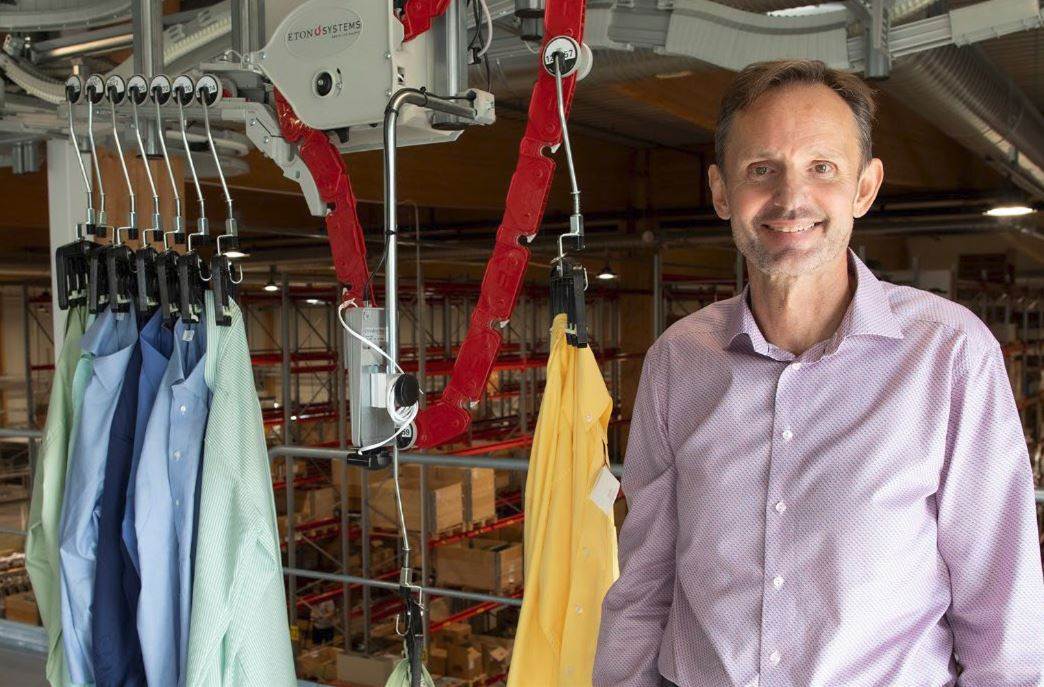Automated textiles sorting key to compliance, say Swedish partners

Eton Systems, a member of the Swedish Textile Machinery Association (TMAS), is helping to develop a fully automated workflow for second-hand garments as part of the Microfactories System Innovation project
Eton is contributing its transport system for material handling to the project, which also involves specialists at the Swedish School of Textiles in Borås, the Automation Region innovation cluster at Mälardalen University and the national collaboration platform iHubs Sweden.
Jan Molin, CEO of Eton Systems, said: “The volumes are now so large that handling must be automated for it to work. The new EU regulations requiring separate collection of textiles are having an impact, but we are also seeing an increasingly positive attitude towards reuse and greater awareness of the textile industry’s environmental impact.”
As part of the project, a test facility is being established at Science Park Borås involving garments being placed on custom product carriers within an Eton Systems conveyor system and transported through a series of stations.
The garments are inspected using a vision system, after which AI is employed to categorise them based on parameters such as manufacturer, model and size. Any damage is analysed and the system also provides recommendations for possible repairs.
“The collected information is fed into a calculation model that, based on market data, makes suggestions for a sales price,” Molin explains. “Finally, the garment is photographed for marketing and then transported to a warehouse awaiting sale.”
The Microfactories System Innovation project builds on previous projects that have mainly focused on developing small-scale, local and needs-based production. Now the focus is on the growing market for reuse. “We see enormous potential in second hand,” said Molin. “It is an area that is growing rapidly and where there is room for innovation and new business models. There is also the opportunity to move technology from other industries.”
Work on the project started in 2024 and will continue for four years. For Eton Systems, participation means both a chance to test new applications for its technology and to strengthen the company’s ability to innovate.
“Collaboration with universities and innovation environments helps us to be at the forefront,” added Molin. “We can participate in freer and more visionary development, without having to take on all the work ourselves. But above all, it is about contributing to a more circular industry, where materials can be used for longer and in a smarter way.”
The Microfactories System Innovation project is funded by the European Regional Development Fund, the Swedish Agency for Economic and Regional Growth, Region Västra Götaland and Region Västmanland.
Image: Jan Molin, CEO of Eton Systems.






